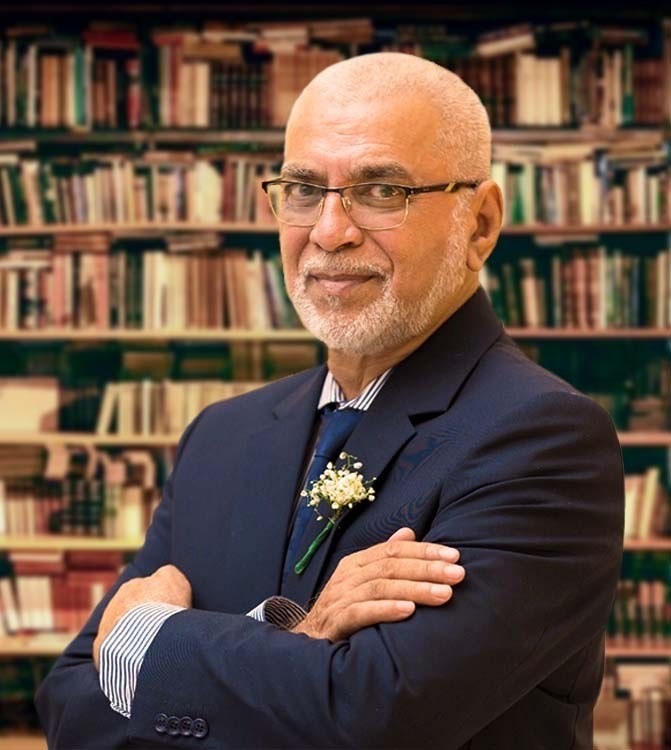All over the Muslim world, two rival groups are always in conflict: One attracts highly educated people who believe in reason and logic, but care little for religion, while the other consists of largely uneducated people who hold fanatically to certain beliefs and try to impose them on others.
Definitely these two groups with widely different attitudes to religion exist. These have been there since the very early days of human existence. The noble prophets and those who have followed them on the same route try to bring the message of faith home to people, hoping that they will respond positively to the call to believe in the Oneness of Allah.
On the other hand, there are those who are opposed by people who prefer to follow what they feel to be their interest, paying no regard to the divine guidance and caring little for the teachings of prophets and the guidance of God, Almighty. This has always been the case, and it will continue to be so, until the end of human life.
The group opposed to faith attracts mostly the highly educated who rely on reason and logic. They either prefer not to study religion with the sort of seriousness they attach to other matters. They prefer to satisfy immediate pleasures and they feel that their position will be threatened by religion. They simply do not respond to the challenge of the divine message to use their reason and logic in evaluating the truth advanced by the divine faith. There was a time when a higher proportion of educated people seemed to move away from religion, but if you look at the historical circumstances that led to this situation, you are bound to conclude that this was the result of the alien system of education that was devised by the colonial authorities in most Muslim countries.
The colonial powers were able to impose their will over most of the Muslim world, after a long period of decline throughout the Muslim areas. But when that phase was over, and education moved towards being universal, more and more educated people found no difficulty in making a happy match between education and religion. Indeed, it is the divine faith that calls on people to use their reason and logic, because when they do that, they can easily recognize the truth of the Oneness of God and the validity of the divine message. In the history of Islam, there was no time when a conflict took place between enlightened education and scientific findings on the one hand, and Islam on the other. Indeed, the two stand always hand in hand. It is true that there are people who claim to be religious and try to impose their ideas on others. Such people have not learned Islam well. They do much damage to the cause of Islam. They are rarely aware of its fundamental principle to respect individual freedom. Islam advocates that freedom of thought, belief and expression as a basic right of all human beings. Fanaticism is alien to Islam and it will always remain so.
These days, Muslims look down upon each other. Each considers the other as inferior and many groups go to the extent of denouncing each other. Then what is all this talk of Brotherhood?
The Prophet (sa.w) says: “Do not hate each other and do not envy one another, and do not turn your back on each other. Servants of Allah, be always brothers. It is not lawful for anyone to boycott his brother for over three nights. They may meet and each of them turns his face away. The one who is first to greet the other is the better one of the two of them.”
This Hadith shows how much importance Islam attaches to the brotherhood of Muslims and how it discourages any action that tends to weaken the bond of brotherhood. That means that it is permissible, although by no means encouraged, for two Muslims not to be on speaking terms for a shorter period. This should be understood as a concession which is given in view of what quarrels may take place between people who are otherwise good Muslims. It is only natural for a human being to get angry at times and to allow his anger to get the better of him. This may lead to an estrangement or a boycott between them. Muslims who find themselves in such a situation are allowed three days to let their tempers cool down.
Quarrels which result from long harbored hate or envy will take much longer to mend. However, we are commanded by the Prophet not to entertain such feelings for any length of time against fellow Muslims. Perhaps it should be added here that when a person fears that his continued relationship with a particular person is bound to cause him harm, whether in respect of his worldly interest or in respect of his fulfillment of his Islamic duties, he will be right not to maintain a very close relationship with that person. He need not boycott him altogether, but he may keep him at arm’s length. Sometimes when a quarrel takes place between two people, they regret it and both of them are eager to mend the relationship, but they cannot bring themselves to start the process of reconciliation.
The Prophet encourages us not to allow such a consideration to stop us from doing what is right. It is not easy for people to overcome their ego and bring themselves to greet a person with whom they have quarreled, especially when they genuinely feel hurt that the other person was totally in the wrong. But it is this particular attitude which the Prophet wants to play down so that it does not prevent Muslims from making things up after they have quarreled.
So the overriding criterion for a Muslim is what to do in order to earn Allah’s pleasure and receive more reward from Him.
Bashir Nuckchady





![[Poetry corner] Mystical poem: The greatness of Allah](https://sundaytimesmauritius.com/wp-content/uploads/2024/06/Cassam-Tupsy2-218x150.jpg)




![[URGENT] Le PMSD convoque son comité exécutif cet après-midi](https://sundaytimesmauritius.com/wp-content/uploads/2024/07/x-150x150.png)



![[URGENT] Le PMSD convoque son comité exécutif cet après-midi](https://sundaytimesmauritius.com/wp-content/uploads/2024/07/x-100x70.png)
